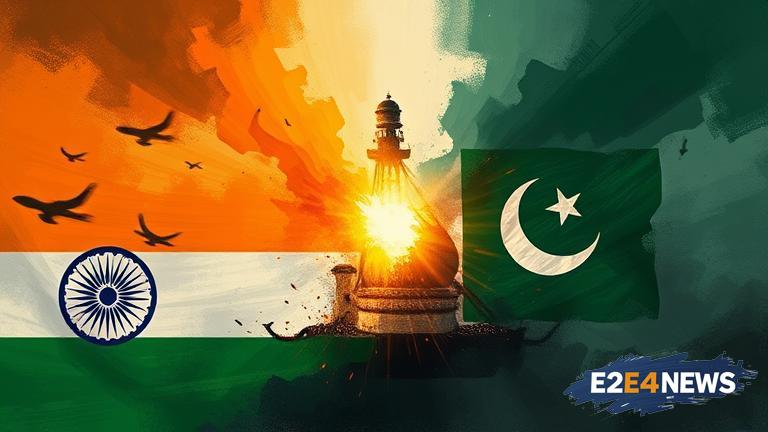The strategic reversal thesis has been a topic of discussion in recent times, particularly in the context of India’s Pakistan policy. The collapse of India’s Pakistan exclusion strategy has been attributed to various factors, including the failure of Operation Sindoor. This operation, aimed at isolating Pakistan, has been criticized for its ineffectiveness and lack of clear objectives. The Indian government’s decision to launch Operation Sindoor was seen as a response to Pakistan’s alleged support for militant groups in Kashmir. However, the operation has been marred by controversy, with many questioning its legality and morality. The use of military force against Pakistan has been criticized by human rights groups, who argue that it has led to significant civilian casualties. Furthermore, the operation has failed to achieve its intended goals, with Pakistan continuing to support militant groups in the region. The collapse of India’s Pakistan exclusion strategy has significant implications for regional stability and security. It highlights the need for a more nuanced and diplomatic approach to addressing the complex issues between India and Pakistan. The Indian government must re-evaluate its policy and consider alternative strategies that prioritize dialogue and cooperation. The role of international organizations, such as the United Nations, cannot be overstated in facilitating a peaceful resolution to the conflict. The international community must also play a more active role in promoting regional stability and security. The collapse of India’s Pakistan exclusion strategy is a wake-up call for policymakers to rethink their approach to conflict resolution. It is essential to recognize that military force is not a viable solution to the complex issues between India and Pakistan. Instead, a more comprehensive and inclusive approach is needed, one that takes into account the concerns and interests of all parties involved. The Indian government must prioritize diplomacy and dialogue, engaging with Pakistan and other stakeholders to find a peaceful and sustainable solution to the conflict. This will require a significant shift in policy, one that acknowledges the complexities of the issue and the need for a more nuanced approach. The collapse of India’s Pakistan exclusion strategy is a reminder that military force is not a substitute for diplomacy and dialogue. It is essential to prioritize a peaceful and diplomatic approach to conflict resolution, one that recognizes the interests and concerns of all parties involved. The international community must also play a more active role in promoting regional stability and security, recognizing the complexities of the issue and the need for a more comprehensive approach. The use of military force against Pakistan has been widely criticized, with many arguing that it has led to significant civilian casualties and human rights abuses. The Indian government must take responsibility for its actions and prioritize a more diplomatic and peaceful approach to conflict resolution. The collapse of India’s Pakistan exclusion strategy is a significant development, one that highlights the need for a more nuanced and comprehensive approach to addressing the complex issues between India and Pakistan. It is essential to recognize that military force is not a viable solution to the conflict and that a more diplomatic and peaceful approach is needed. The Indian government must prioritize dialogue and cooperation, engaging with Pakistan and other stakeholders to find a peaceful and sustainable solution to the conflict. The role of international organizations, such as the United Nations, cannot be overstated in facilitating a peaceful resolution to the conflict. The international community must also play a more active role in promoting regional stability and security, recognizing the complexities of the issue and the need for a more comprehensive approach. The collapse of India’s Pakistan exclusion strategy is a wake-up call for policymakers to rethink their approach to conflict resolution. It is essential to recognize that military force is not a substitute for diplomacy and dialogue, and that a more comprehensive and inclusive approach is needed to address the complex issues between India and Pakistan.
